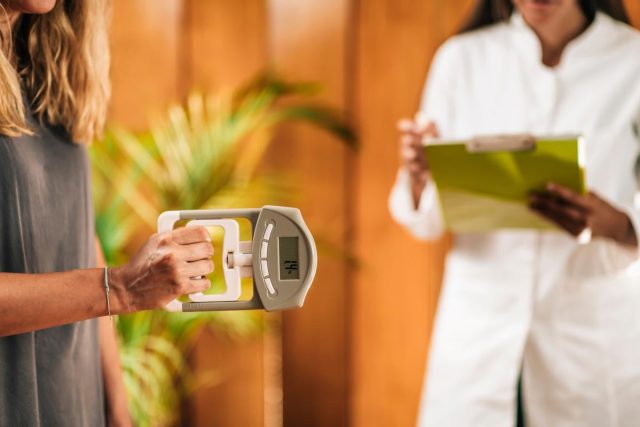Findings seen among postmenopausal women; association stronger in those postmenopausal for >10 years
By Lori Solomon HealthDay Reporter
WEDNESDAY, Dec. 11, 2024 (HealthDay News) — Weaker handgrip strength (HGS) appears to be associated with a higher likelihood of having diabetes mellitus (DM) among postmenopausal women, according to a study published online Dec. 3 in Menopause.
Yun Soo Chung, M.D., from the Yonsei University College of Medicine in Seoul, South Korea, and colleagues investigated the association between HGS and DM in postmenopausal women in Korea. The analysis included data from 4,098 postmenopausal women (aged 45 to 65 years) identified from the Korean National Health and Nutrition Examination Survey (between 2014 and 2019).
The researchers found that postmenopausal women with stronger HGS were less likely to have DM. Even after adjusting for age, body mass index, and comorbidities, this association persisted. In women who had been postmenopausal for >10 years, the inverse relationship between HGS and DM prevalence was more pronounced than in those who had been postmenopausal for a shorter duration. Women with DM were less likely to be categorized into the fourth quartile group (stronger HGS) compared with their nondiabetic counterparts.
“The results of this study showed that postmenopausal women with high muscle strength were less likely to have diabetes, highlighting the known benefits of maintaining muscle mass — a critical marker for prediction of health status,” Stephanie Faubion, M.D., medical director of The Menopause Society, said in a statement.
Abstract/Full Text (subscription or payment may be required)
Copyright © 2024 HealthDay. All rights reserved.



















